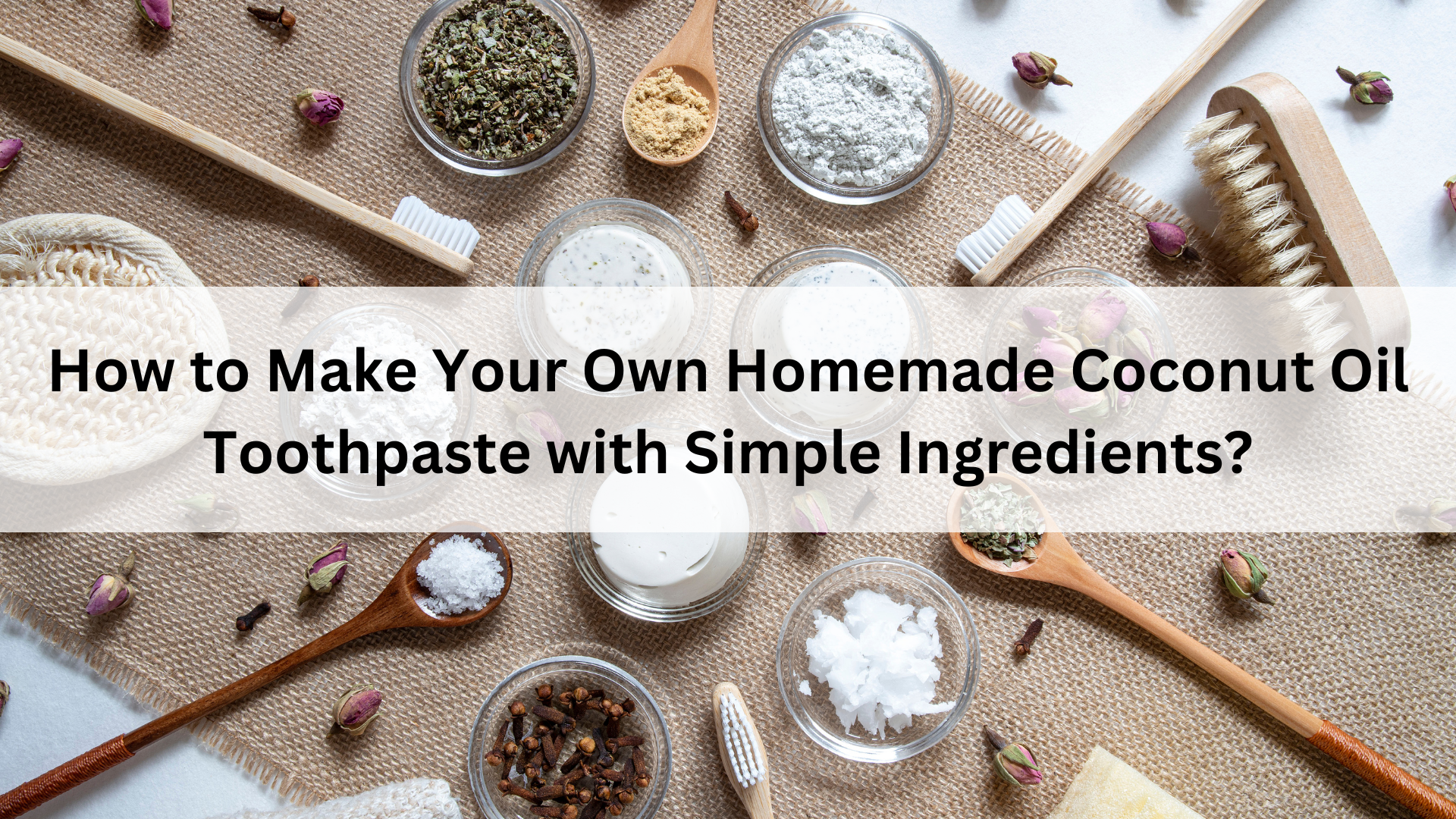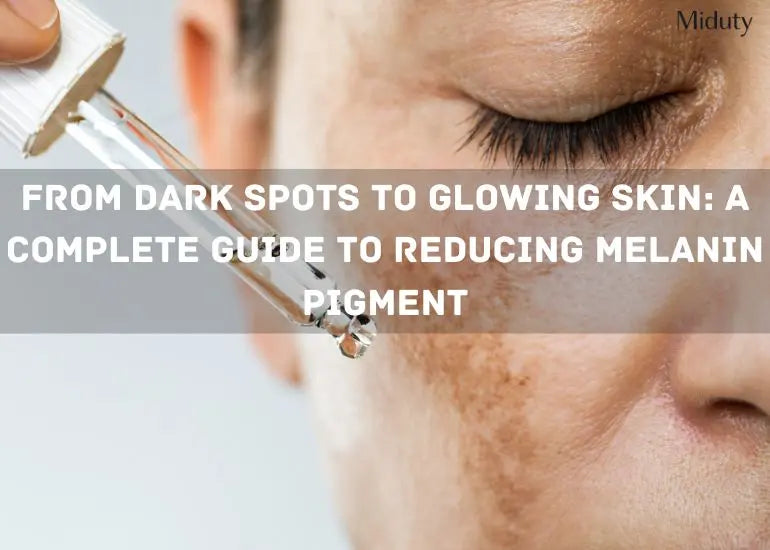
How to Make Your Own Homemade Coconut Oil Toothpaste with Simple Ingredients?
Introduction | Harmful Chemicals in Toothpaste | Homemade Toothpaste Recipe | Charcoal for Teeth Whitening | Healthy Toothpaste Ingredients | Conclusion
When thinking about health risks, toothpaste might not be the first thing that comes to mind. Yet, many commercial toothpaste brands contain potentially harmful chemicals that are easily absorbed into the bloodstream due to the high absorbency of the mouth. For instance, some toothpaste ingredients, such as parabens, act as endocrine disruptors, which means they interfere with hormones. These substances can mimic estrogen, leading to imbalances like estrogen dominance, which in turn can affect testosterone levels, increase cancer risk, and even impact fertility.
A healthier alternative is to switch to a homemade toothpaste that avoids these chemicals and focuses on natural, beneficial ingredients. This post explores a healthy homemade remineralizing toothpaste that uses coconut oil as its base. Coconut oil toothpaste not only provides a natural approach to oral hygiene but also includes ingredients known to support tooth health without harmful side effects. By creating your toothpaste, you can choose safe, effective ingredients that protect your teeth and benefit your overall health, all while keeping your routine free of unwanted chemicals.
Harmful Chemicals in your Toothpaste
Fluoride:
Fluoride is commonly added to commercial toothpaste to help prevent cavities, but its potential downsides often outweigh the benefits. Beyond dental care, fluoride may interfere with thyroid function and, in excessive amounts, can lead to brittle bones. Notably, fluoride can cross the blood-brain barrier, potentially affecting memory and cognitive health. Studies have also shown that fluoride exposure can lower sperm count, contribute to tiredness, and weaken the immune system.
Children are particularly vulnerable, as their smaller bodies require much lower doses for fluoride buildup to become harmful. Additionally, if you live in an area where the water is fluoridated, fluoride levels in your body can accumulate even faster.
Switching to homemade toothpaste offers a way to avoid fluoride and other questionable toothpaste ingredients.
Sodium Lauryl Sulfate (SLS):
Sodium Lauryl Sulfate (SLS) is a common ingredient found in personal care products, including toothpaste ingredients that help create a foaming effect. While SLS itself is generally safe for short exposure—like the minute or two spent brushing, it can be irritating to some people's skin and eyes. The bigger concern, however, lies in how SLS is manufactured. During processing, it is often contaminated with 1,4-dioxane, a known carcinogen. Although not every manufacturing process results in this contamination, many do, which makes it a potential health risk.
Hydrogen Peroxide:
Hydrogen peroxide is a widely used ingredient in whitening toothpaste ingredients, mouthwashes, and other dental treatments due to its stain-removing properties. However, it may cause gum irritation and increased tooth sensitivity in some people. Additionally, hydrogen peroxide can temporarily soften teeth, raising the risk of enamel loss.
A great alternative for safer, natural oral care is homemade toothpaste, particularly a coconut oil toothpaste blend. By creating your healthy toothpaste, you have full control over the ingredients, avoiding potential irritants like hydrogen peroxide while promoting dental health.
Homemade Remineralizing Toothpaste Recipe

Create your healthy toothpaste with this simple and effective homemade toothpaste recipe, especially great as a coconut oil toothpaste for a natural remineralizing boost. Customize the flavors and enjoy a safe, chemical-free clean!
Ingredients:
4 tablespoons extra virgin coconut oil
½ - 1 tablespoon xylitol (optional, for sweetness)
5 tablespoons calcium phosphate (or calcium carbonate if unavailable)
½ teaspoon Himalayan salt (optional)
2 tablespoons baking soda
10-20 drops peppermint essential oil (optional, for freshness)
10-20 drops antibacterial oil (like neem oil)
Method:
1. In a bowl, combine all powder ingredients.
2. Gradually add the coconut oil while mixing until it reaches your preferred consistency (melt the coconut oil first if needed).
3. Add the peppermint essential oil for a refreshing taste.
4. Transfer the mixture to a glass jar.
5. To use, dip or scoop a small amount with a spoon, apply it to your toothbrush, brush, and rinse as usual.
Storage: This homemade toothpaste can be stored in a cool, dry place and is best used within three months.
Options to Personalize:
1. Add zinc citrate and/or magnesium oil for added mineral benefits.
2. Trace mineral drops (5-10 drops) can boost the mineral content.
3. Himalayan salt is optional for mineral content.
4. Bentonite clay (use 4 tablespoons) is an optional addition. If using, add a small amount of water after mixing in the coconut oil, but avoid bentonite clay if you have mercury fillings.
5. Sweetener options: Stevia can be used in place of xylitol.
If you can't find calcium phosphate, use calcium carbonate.
Essential Oils for Flavor:
Customize the flavor with these essential oils for additional benefits:
- Vanilla
- Neem (antibacterial)
- Tea tree (antibacterial)
- Eucalyptus (refreshes breath)
- Lemon or Orange
- Clove (ideal for sensitive teeth)
- Cinnamon (antibacterial)
This coconut oil toothpaste recipe offers a natural way to support dental health without the chemicals often found in store-bought options.
Activated Charcoal for Teeth Whitening
Activated charcoal is a popular natural option for whitening teeth. While it's effective at removing surface stains, some concerns about its abrasiveness exist. If you're uncertain, it's best to consult your dentist to make sure it's safe for regular use on your enamel.
To try it out, simply dab a small amount of activated charcoal on your teeth and let it sit for a minute or two. Then, rinse your mouth thoroughly with water, swishing to remove any residue. Despite its dark colour, activated charcoal won't leave your teeth black instead, it may help reveal a brighter smile by lifting surface stains naturally!
What are the Great Healthy Toothpaste Ingredients?

Using natural ingredients like activated charcoal, coconut oil, and xylitol in homemade toothpaste offers a chemical-free way to maintain oral health. Here's how each of these ingredients contributes to a healthy toothpaste:
1. Activated Charcoal: Known for its teeth-whitening properties, activated charcoal removes surface stains and impurities without harmful chemicals. It's gentle but effective, though it's best to check with a dentist to ensure it's suitable for frequent use.
2. Coconut Oil: Coconut oil is a natural antimicrobial agent that fights bacteria, reduces inflammation, and adds a smooth texture to the toothpaste. It binds other toothpaste ingredients together and feels soothing in the mouth. Read about the other benefits of coconut oil here.
3. Diatomaceous Earth (DE): Rich in trace minerals, DE offers gentle abrasiveness to help polish teeth. It can even replace baking soda for those who want a different texture in their coconut oil toothpaste.
4. Xylitol: A natural sweetener that doesn't contribute to cavities, xylitol prevents plaque buildup and makes the mouth more alkaline, reducing harmful bacteria. It's a safer alternative to sugars and artificial sweeteners.
5. Calcium Phosphate: Essential for remineralizing teeth, calcium phosphate strengthens enamel, making teeth more resilient against decay.
6. Himalayan Salt: Packed with trace minerals, Himalayan salt balances mouth pH and has been traditionally used to combat harmful bacteria.
7. Baking Soda: Known for its whitening effect, baking soda is mildly abrasive and helps scrub away plaque. It also alkalizes the mouth, which prevents bacterial growth.
8. Peppermint Essential Oil: This oil gives coconut oil toothpaste a refreshing taste, calms inflammation, and has antibacterial properties, making it a fantastic addition to fresh breath.
These homemade toothpaste ingredients clean effectively and also contribute to oral health without the risks associated with synthetic chemicals.
Conclusion:
Incorporating natural ingredients like activated charcoal, coconut oil, xylitol, and calcium phosphate into your homemade toothpaste offers a chemical-free, effective solution for maintaining oral health. These ingredients work together to whiten, remineralize, and protect your teeth while promoting a healthier, more balanced mouth. By choosing a healthy toothpaste made from natural components, you can avoid the harmful effects of chemicals commonly found in commercial toothpaste, ensuring your teeth stay strong, fresh, and free from unwanted toxins. Switch to a coconut oil toothpaste for a safer, more holistic approach to oral care.








